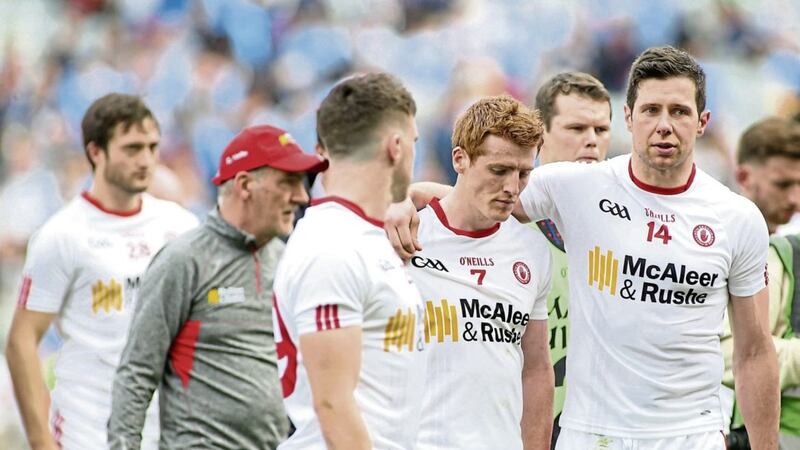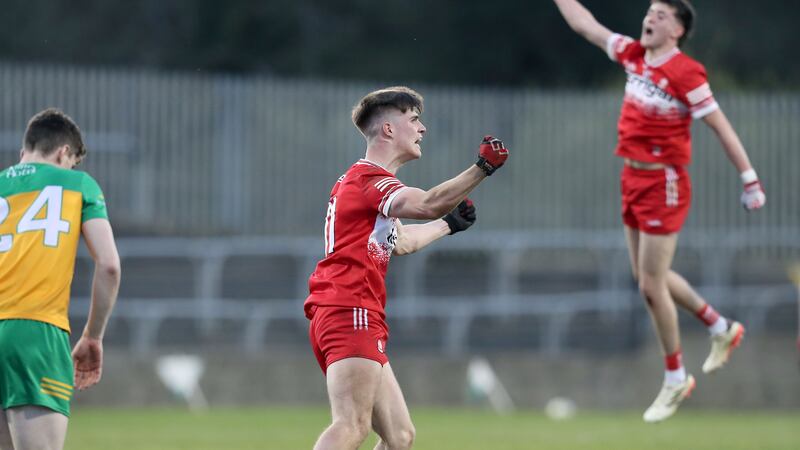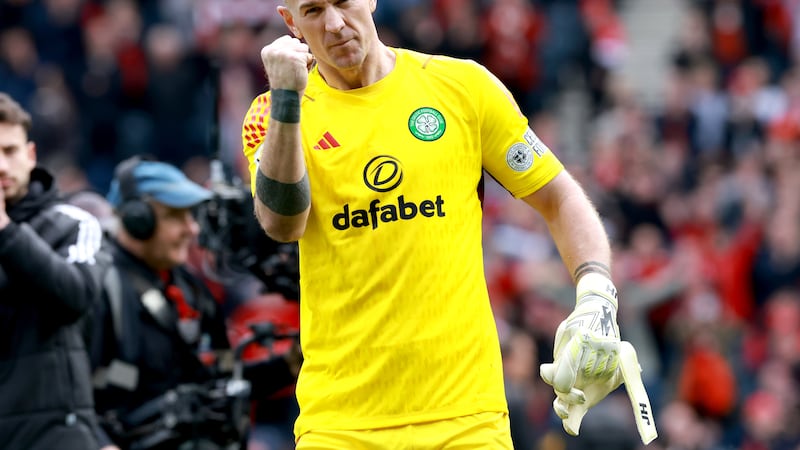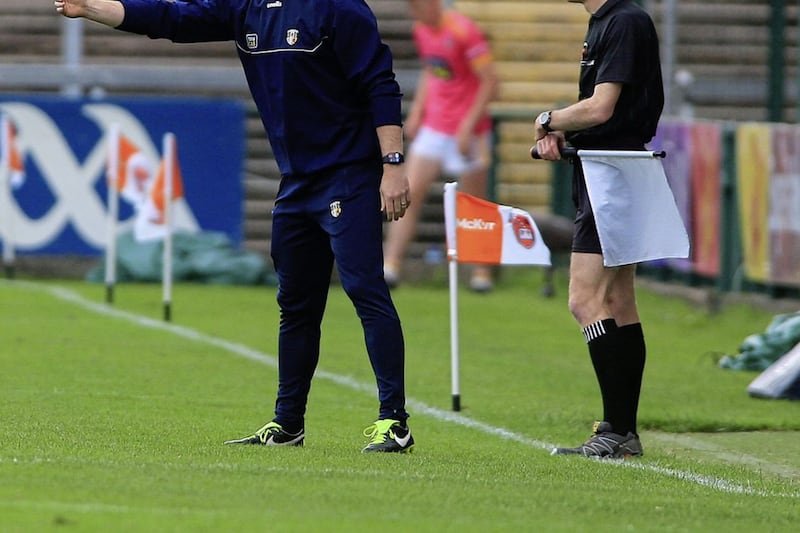DESPAIR: the complete loss or absence of hope. Tyrone players and supporters got plenty of the sporting sort last weekend.
Even now, five days later, there is a degree of disbelief at what transpired. How could a team who had won Ulster in record-breaking and comprehensive manner end up suffering a record-breaking defeat?
In some quarters the early goal is being viewed as crucial but there has to be more to it than that. In so many aspects of the game, Dublin’s strengths were exaggerated by Tyrone’s below-par performance. Dublin’s efficiency in front of the posts highlighted the oft-mentioned lack of Tyrone firepower.
Dublin and Tyrone both boasted a great spread of scorers and scoring returns coming into the game. Dublin tended to achieve theirs primarily via top-quality attacking talent, while Tyrone were dependent on a tactical system.
The bottom line is that only one of these succeeded on Sunday. Tyrone’s counter-attack was shot down through a combination of Dublin defensive numbers, excellent Dublin tackling and an uncharacteristic Tyrone inability to retain the ball under pressure. When Tyrone did create those rare chances, too often wides were hit.
Dublin essentially merged the blanket defence, often getting 15 men behind the ball, with an attacking style not unlike the famous tiki-taka approach of Barcelona.
They penned Tyrone into their own half and kept passing and moving the ball with a swiftness that left Tyrone chasing shadows. They avoided contact as much as possible then waited for the perfect moment to pounce.
It looked simple, but many teams across the country, both club and county, have tried to negate the blanket by maintaining possession and spreading play.
It requires skill, intelligence and composure to make it work and speed and accuracy to get the scores when a chance presents itself. For most teams, it is only a partial success. Like the Catalan giants however, Dublin are not most teams.
In training, Dublin apparently focus a lot on creating situations where the players’ decision-making is challenged: where/who/when to pass; when/how/where to take on a man; where/when/how to tackle; or indeed, as evidenced by Sunday, when/where/who to foul.
Drills are designed to force this decision-making under pressure to maximize the chance of it going right on the big day. In every element of these they got things right to a stunning degree on Sunday.
The fact, however, that Tyrone stayed behind their blanket for the first half left too much of this decision-making to occur with probably less pressure than the Dublin players face in training. In the end, the weaknesses of the blanket were badly exposed.
Another, rather area of concern – one you wouldn’t have expected before the match – was in the physical stakes. Dublin physically got at Tyrone and really committed to the tackle. In doing so they picked up four yellow cards and committed numerous personal fouls. Tyrone’s sole card went to Colm Cavanagh just before half-time.
While Tyrone’s relative lack of cards may suggest good discipline, it may alternatively suggest a team or set-up that simply never got at their opponents or never found that line that Championship football demands.
Too often they shadowed a man, then, when the man turned back out again, the Tyrone defender would retreat back into the blanket.
The physical game is only one aspect of it and is never the sole answer but it must be part of the picture. It has nothing to do with talent, yet was another area where Dublin won out.
So where now? The obvious one is to consider moving away from the blanket defence. The belief in the blanket defence and the patience needed to watch it was served a hammer blow by Sunday’s capitulation. There is a strong and understandable mood for change.
The performances of Mayo in last year’s All-Ireland final or last weekend’s semi-final and Kerry’s performance in the League final all showed the possible evolution of the game.
While generally still defensive, there was much more pressing higher up the pitch and man against man work to avoid opponents having easy time on the ball to build.
Returning to the Barcelona tiki-taka analogy again, this was eventually matched by less talented teams like Borussia Dortmund or Atletico Madrid, who, with their ‘gegenpress’ or ‘heavy metal’ football, used a more high-pressure style to push out hard at set moments and turn over the ball higher up the pitch.
This takes huge energy, coaching and tactical awareness, something Tyrone and other top teams are not shy of.
A nostalgic glance back at the football of ’03 and ’05 would even suggest it was not unlike Tyrone’s style then. Crucially, it would avoid the sickening waltzing around untouched that Dublin were permitted while Tyrone players were left to run about like three-year-olds playing tig with their big brother.
One area which shouldn’t be pursued is trying to train ever harder to match Dublin’s apparent superiority with speed and conditioning. I have no doubt that Tyrone trained every bit as hard as Dublin. Indeed, they probably trained harder. Yet they looked flat on Sunday.
It is hard to know whether this was due to Dublin or just the confidence seeping out of Tyrone as the game unfolded. Either way, there are only so many hours in a player’s day and it was Dublin’s football ability that was the decisive factor not their fitness.
Inevitably there are calls for Mickey Harte to go. Like Brexit and Donald Trump the easiest thing is always just to plump for change but it may not prove the wisest of moves. I accept I’m not unbiased and I accept that Mickey’s record cannot give him the post for life but a few facts need to be considered by those suggesting change.
It appears fairly widely accepted within the county that he has largely the best players on his panel and playing very well. He also has massive team unity and spirit, something which shouldn’t be taken for granted in the modern age.
Yes, this team underperformed on Sunday, but in general they are playing close to their full potential. For any manager, surely that is all you can do. If change is still suggested, who are the candidates? The only credible candidates to my mind are loyal to Mickey and won’t come in if he has expressed the desire to stay on.
Of course, all such discussion and analysis can be considered typical of that peculiar blend of GAA madness that bases every judgement or insight on the outcome or performance of the last game.
This leads to the wild swings in optimism and opinion seen this season with Donegal, Down and Armagh and led to Stephen Rochford being declared a donkey after Mayo’s draw with Kerry.
Hindsight gives any fool wisdom. One result doesn’t make Dublin invincible, nor make Tyrone suddenly a bad team. The manner of Tyrone’s defeat, however, surely prevents it from being considered a one-off aberration that can be ignored. There is no point feeling sorry for ourselves, Dublin are what they are and there remains two facts: they are beatable and will be beaten.








